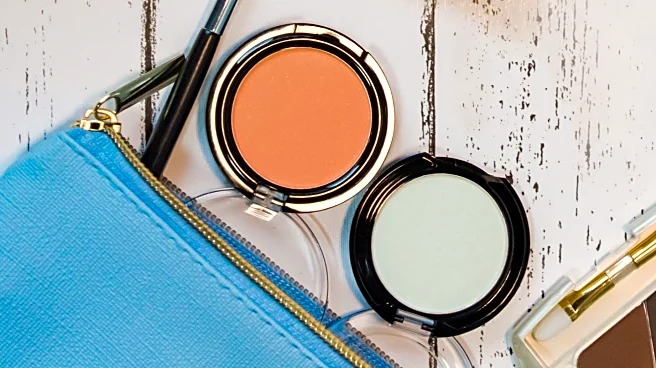What's Happening?
Neutrogena has initiated a recall of its popular makeup remover wipes due to potential bacterial contamination. The recall affects the Neutrogena Makeup Remover Ultra-Soft Cleansing Towelettes, specifically
the 50-count packs with lot number 1835U6325A. These wipes were distributed in Florida, Georgia, South Carolina, and Texas. The recall was classified as a Class II recall by the FDA, indicating that the product could cause temporary or medically reversible health issues. The contamination involves the bacterium Pluralibacter gergoviae, which can lead to skin rashes, mild irritation, and in severe cases, respiratory complications or sepsis, particularly in individuals with weakened immune systems. No infections have been reported so far. The recall was initiated on September 19th and was publicly classified on October 3rd.
Why It's Important?
This recall is significant as it highlights the ongoing challenges in ensuring product safety in the beauty industry. Neutrogena's makeup wipes are a staple in many households, and the recall could impact consumer trust in the brand. The potential health risks associated with the contamination, although rare, underscore the importance of stringent manufacturing and quality control processes. For consumers, especially those with compromised immune systems, the recall serves as a reminder to be vigilant about product safety. For Neutrogena, this incident could lead to increased scrutiny and possibly affect its market position if not managed effectively.
What's Next?
Neutrogena's parent company, Kenvue, has stated that no other products or lots are affected by this recall. The company is likely to focus on addressing the manufacturing deficiencies that led to the contamination. Consumers are advised to check their products for the affected lot number and discontinue use if they possess the recalled wipes. Retailers may also need to manage returns and refunds for the affected products. The company may also engage in public relations efforts to reassure consumers and restore confidence in their product safety standards.









